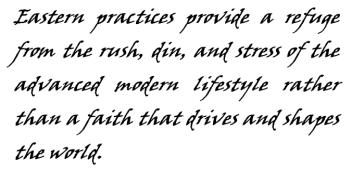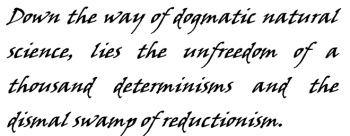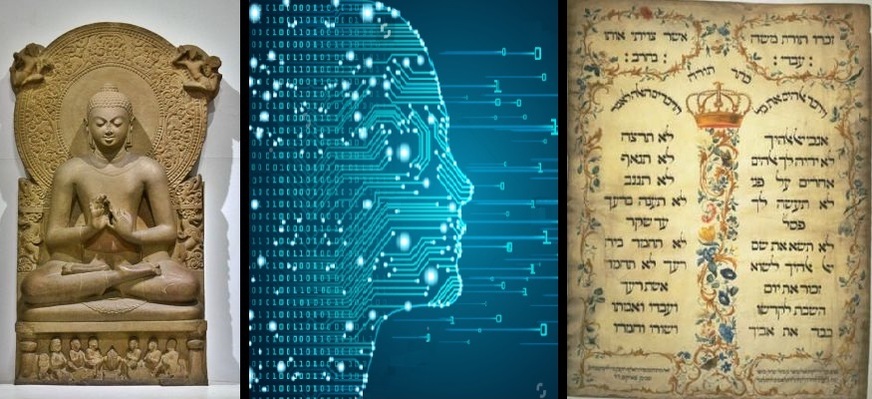A review of Os Guinness: Last Call for Liberty – Part 5
Freedom does not arise out of a vacuum, nor can it be sustained simply by assertion or wishful thinking. As the saying “ideas have consequences” would indicate, freedom can only exist when there is some philosophical or religious system of thought that provides a foundation for it.
Os Guinness spends a chapter of his book Last Call for Liberty discussing various systems of belief and what kind of basis they form for liberty as we understand it in America. He divides these ideas into three main families.
Eastern religions
These include Hinduism, Buddhism, and Jainism. While there are of course significant differences among these beliefs, they have in common the idea of an impersonal ground of being as the basis for the universe. The Eastern concept of freedom is liberation from desire, striving, and individuality. A human being's ultimate goal is to achieve oneness with the impersonal universe—Nirvana—where his or her individuality becomes submerged into the whole.
 Although practices derived from Eastern religions, such as New Age thought and yoga, are popular in the U.S. today, their fundamental assumptions are at odds with American-style freedom. Individual liberties, freedom of conscience, the “pursuit of happiness” that our Declaration described—these have no support in Eastern thought but are considered maya, illusory obstacles to achieving the goal of nirvana, the “great deathless lake of extinction.”
Although practices derived from Eastern religions, such as New Age thought and yoga, are popular in the U.S. today, their fundamental assumptions are at odds with American-style freedom. Individual liberties, freedom of conscience, the “pursuit of happiness” that our Declaration described—these have no support in Eastern thought but are considered maya, illusory obstacles to achieving the goal of nirvana, the “great deathless lake of extinction.”
And in fact, the freedoms that Americans have traditionally valued never arose organically in the Far East and have not flourished there. They only exist where they have been adopted from Western culture.
Secularism
Secularist beliefs include atheism, agnosticism, naturalism, and materialism, which reject any reference to a deity or supernatural powers. In these philosophies, the only ultimate force at work in the universe is random chance.
Most secularists place a high premium on freedom. They especially value the idea of freedom from the control or demands of a god and the sense of autonomy that that creates.
 But there are two problems with the secularist idea of freedom. First of all, it provides no basis for a “commonwealth”—a system for unifying all these autonomous individuals into a harmonious, flourishing society. The notions of individual freedom and societal harmony stand at odds with one another, so the more freedom is exercised, the more chaos ensues.
But there are two problems with the secularist idea of freedom. First of all, it provides no basis for a “commonwealth”—a system for unifying all these autonomous individuals into a harmonious, flourishing society. The notions of individual freedom and societal harmony stand at odds with one another, so the more freedom is exercised, the more chaos ensues.
A more fundamental problem with the secularist view has to do with the very possibility of freedom itself. If the only ultimate force in the universe is chance, then that reduces the human mind to a sum total of all the random influences that have accumulated to act on him since the beginning of time. Secularist thinkers from Nietzsche and Einstein to B. F. Skinner and more recently Sam Harris have understood human choice to be an illusion, making true freedom vacuous.
Abrahamic religions
Abraham was the father of the Hebrews. The religious systems shaped by the Hebrews—Judaism as well as Christianity and Islam which are rooted in Judaism—teach belief in a personal creator God who created humankind in his image. It was Christianity in particular that shaped Western culture and most strongly influenced the American founding.
Os Guinness spends much of the chapter discussing why Judeo-Christian thought is particularly capable of providing a basis for American-style freedom. This will be the subject of my next blog post.


